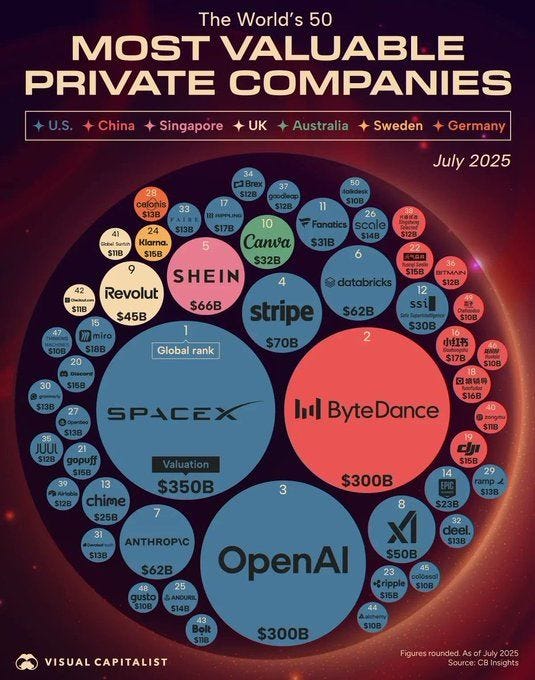Agency Over Expectation
Should we base our action on what is possible, or expected norms?
What If You Built a Billion-Dollar Company Without Knowing How to Code?
That was the question posed to a small group of us recently. This wasn’t a hyped-up pitch or a theoretical debate. It was a challenge, set in an online room filled with serious global professionals who come together to think and act bigger.
The task? Build an AI-enabled tech solution that makes a billion dollars.
Why? Because it’s now possible. And not through vast investment, a large team of technical experts, or deep knowledge of traditional code. It’s now possible through something called ‘vibe coding’.
What’s Vibe Coding?
Vibe coding is exactly what it sounds like. The term was popularised by OpenAI co-founder Andrej Karpathy in early 2025, who described it as “fully giving in to the vibes” where the human focuses on the vision and outcome, and the AI handles the technical detail.
You bring the idea, the outcome, the vibe - and AI does the rest. You describe what you want in plain language, and the AI turns that into functional software. There’s no syntax to master. No dev team to manage. No barrier of “I’m not technical.” You sketch the vision. The AI builds the thing.
It’s been called drag-and-drop for the AI age. Describe an app for climate-friendly logistics in West Africa? Built. Need a compliance dashboard for MSMEs in Indonesia? Done by lunch.
Vibe coding combines rapid prototyping, AI execution, and natural language instructions. It is the disruption of gate-kept software creation and the democratisation of digital product development. For many people around the world, it’s the first real invitation to build something valuable, at scale.
Feeling the Love
Lovable is one of the breakout platforms powering this shift. It allows anyone to build and launch full-stack web apps simply by describing what they want in plain language. No code. No gatekeepers. Just fast, functional output, from idea to working product in hours.
According to TechCrunch, since launching in late 2024, Lovable has raised US$200 million, reached a US$1.8 billion valuation, and now counts over 2.3 million active users. More than 10 million projects have already been built on the platform. The pace and scale of adoption - across individuals and organisations - makes it one of the fastest-growing software startups in history. They have achieved this with just 45 full-time employees.
Its rise is a signal of what’s now possible: for both a founding team and for the millions of users, when the tools are open, and the multiplier effect of access takes hold.
Capitalism Isn’t Perfect. Yet It’s the System We’re In.
I dislike the growing wealth gap as much as most people. I’ve spent a significant part of my career working in international economic development to address the widening divide. And, I also recognise that in the world today, wealth creates power. And power, when used well, can positively shape the world.
Not all billionaires are bad. Some are working on problems governments won’t touch.
In Australia, where I’m currently based, Melanie Perkins, co-founder and CEO of Canva, is a clear example. She built one of the most widely-used creative tools on earth. It’s exported to 190+ countries, used by everyone from school kids to startups to the United Nations. It now sits in the top 10 most valuable private companies globally, alongside SpaceX, Stripe, ByteDance, and OpenAI.
Visual Capitalist. The World’s 50 Most Valuable Private Companies (based on CB Insights data). Published July 2025. [https://www.visualcapitalist.com/ranked-50-most-valuable-companies-in-the-world-july-2025/]
Perkins is personally a billionaire. And, Canva has pledged the majority of its wealth to charitable causes and created an equity pool for employees. Its broader approach to value creation, that is commercial, social, and shared, is increasingly seen as a model for what positive-sum capitalism can look like in practice.
That’s the kind of power play I want to see more of.
Image source: Forbes.com, Melanie Perkins profile. Accessed July 25, 2025. [https://www.forbes.com/profile/melanie-perkins/]
Ambition Isn’t a Dirty Word
This invitation to create a billion-dollar AI solution stands in stark contrast to the tone of most meeting agendas and boardroom conversations. While others debate how to “cope” with AI, or drive up productivity by largely maintaining the status quo, we’re being invited to use it to build something valuable enough to shift systems.
The world is full of fear-based restraint. Yet agency is growing. We can create. Convene. Influence. And we can compete on the world stage.
It helps to put ourselves in the right rooms - where positive-sum ambition is not only welcome, but expected. As agency grows, so too does ambition - in certain circles.
I know which spaces I prefer to be in. You?
Of course, getting into the right room isn’t always easy. Yet now is exactly the time to do it because the gap between those who win and those who are left behind is only set to widen. If you’re thinking and acting bigger - or ready to do so - I’d love to hear from you.
Agency Redefined
Leopold Aschenbrenner, formerly with OpenAI, writes in their article Situational Awareness: The Decade Ahead, “You can see the future first in San Francisco.” If that’s true today, will it still be true tomorrow?
Reid Hoffman’s upcoming book, Superagency: What Could Possibly Go Right with Our AI Future (digital release on 28 January 2025), explores AI’s transformative potential. Co-authored with Greg Beato, the book paints an optimistic vision of a future shaped by AI, where human ingenuity and advanced technology combine to create extraordinary outcomes. Hoffman’s message is clear: instead of fearing AI, we should harness its potential to personalize education, accelerate medical breakthroughs, and empower individuals to navigate complexity.
Freedom Before Fracture
Early in my career, a manager told me I “had no scope for promotion.” I wanted to cut ties and move on.
Years later, while working abroad, a senior executive said my Australian accent made me sound uncertain - specifically, the upward inflection at the end of our sentences. I thought, get me out of here now.
And when I was told to stop asking questions - while trying to understand how to secure a win-win deal with China - and instead to simply tell our prospective partners what we wanted, I knew I didn’t belong in that room.
When have you felt tethered - restricted, controlled? When have you been the one to reinforce the tether?
In a world of shifts, these questions can be uncomfortable. Yet they may be more important to consider than waiting for ties to be cut by external forces.







Thanks for sharing your note on "an optimistic vision of a future shaped by AI, where human ingenuity and advanced technology combine to create extraordinary outcomes"